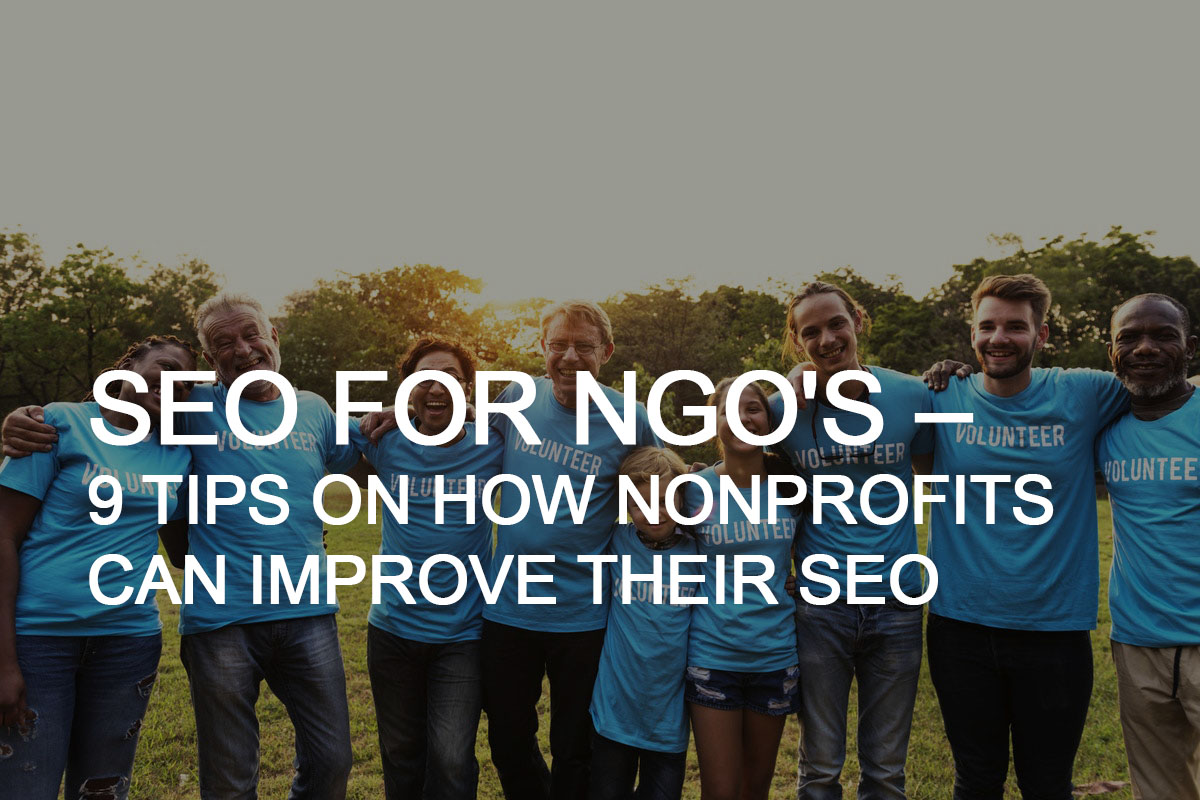Welcome to the world of digital marketing, where understanding how does SEO work is pivotal for anyone looking to enhance their online presence. In this era, where digital real estate is as valuable as physical storefronts, grasping the intricacies of how does SEO work can be the difference between thriving online and fading into obscurity. So, how does SEO work? Let’s dive into this essential question.
SEO, or search engine optimization, is a multifaceted and dynamic field that stands at the forefront of digital marketing. At its core, search engine optimization is about increasing a website’s visibility in the organic (non-paid) search results of major search engines. Why is this important? Because higher visibility in search results correlates directly with increased web traffic, and more traffic can lead to higher sales and brand recognition.
Understanding search engine optimization involves delving into various strategies and techniques used to align with the algorithms of search engines like Google, Bing, and Yahoo. These algorithms are intricate systems that determine where your website lands in the search engine results pages (SERPs). A solid grasp of search engine optimization principles is not just beneficial; it’s a necessity in a world where the majority of online experiences begin with a search engine.
In the following sections, we’ll explore the different aspects of SEO, including on-page and off-page optimization, the role of content, and the technical factors that influence your site’s ranking. Whether you’re a business owner, a blogger, or a marketing professional, understanding how does SEO work is your first step towards mastering the digital landscape.
The Mechanics of Search Engines
In the digital age, search engines have become the gatekeepers of information, guiding us through the vast expanse of the internet. To understand how does SEO work, it’s crucial to first grasp the mechanics of how search engines work. These sophisticated systems are the backbone of online searchability, determining what content gets seen and what remains in the depths of the web.
Search engines operate by crawling billions of web pages using their own algorithms. These algorithms are complex formulas that assess, index, and rank web pages based on various factors such as relevance, authority, and user experience. The primary goal of search engines is to provide users with the most relevant and useful information in response to their search queries. This process is where the concept of organic search results comes into play.
Organic search results are listings on search engine results pages that appear because of their relevance to the search terms, as opposed to their being advertisements. In organic search results, websites are ranked according to the search engine’s algorithm which considers factors like keyword relevance, website quality, and content usefulness. Unlike paid advertising, you cannot pay search engines to get higher organic search rankings, making SEO a vital practice for increasing organic visibility.
Every time a user inputs a query, search engines sift through their indexed pages to present the most pertinent results. This is a continuous and dynamic process, with search engines regularly updating their algorithms and databases to reflect new information and changing user behaviors.
In summary, the mechanics of search engines are fundamental to how information is discovered and consumed on the internet. By understanding how search engines find, crawl, index, and rank content, we can better tailor our SEO strategies to align with their methodologies, thereby enhancing our visibility in organic search results.
Why Is SEO Important?
In today’s digital era, the importance of SEO, or Search Engine Optimization, cannot be overstated. SEO is the backbone of effective digital marketing and plays a crucial role in enhancing the online presence of any website. This section delves into the reasons why SEO is so vital for businesses, bloggers, and online entities.
Driving Organic Traffic
-
Primary Source of Website Traffic: Organic search is often the primary source of web traffic for most websites. SEO optimizes your site to rank higher in search engine results, thereby increasing the likelihood of attracting visitors without the need for paid advertising.
-
Targeted Reach: SEO helps in targeting users who are actively searching for information, products, or services related to your business. This targeted approach leads to higher quality traffic, which is more likely to convert into leads or sales.
Cost-Effectiveness
-
Long-Term Marketing Strategy: Unlike paid advertising, the effects of SEO are long-lasting. While it requires upfront investment in terms of time and resources, once your site ranks higher in search results, it can maintain its position for an extended period, offering a higher return on investment.
-
Reduced Advertising Costs: With effective SEO, there’s less need to spend on paid advertising. Your website can attract traffic organically, saving you advertising costs.
Enhancing Local Engagement
-
Local SEO for Local Businesses: For local businesses, local SEO strategies help in appearing in local search results, which is vital for attracting customers in your area. This includes optimizing for local keywords, creating a Google My Business listing, and managing local citations.
SEO as a Competitive Advantage
-
Staying Ahead of Competitors: In a competitive market, having a robust SEO strategy can place you ahead of competitors. If your website ranks higher than your competitors in search results, it is more likely to attract traffic and potential customers.
SEO is an indispensable part of any successful online strategy. It not only helps in driving organic traffic and building credibility but also provides deep insights into customer behavior and market trends. Whether you’re a small local business or a large corporation, the importance of SEO in achieving online success is undeniable.
On-Page SEO and Its Components
On-Page SEO is a critical component of search engine optimization, focusing on optimizing elements within your website to make it more attractive to search engines and users alike. This section will take a deep dive into the key elements of on-page SEO, highlighting the importance of keyword research and content creation that aids search engines in understanding your sites web page’s purpose and value.
The Role of Keyword Research
Keyword research is the cornerstone of on-page SEO. It involves identifying the words and phrases that potential customers use when searching for products or services like yours. Effective keyword research not only helps in crafting content that resonates with your audience but also ensures that your pages are indexed correctly by search engines for relevant queries. By understanding and implementing the right keywords, you can significantly improve your site’s visibility and ranking.
Crafting Content for Search Engines
Creating content that helps search engines understand your website is about more than just sprinkling keywords throughout your page title and text. It’s about constructing clear, informative, and engaging content that addresses the needs and questions of your audience. When search engines understand the context and relevance of your content, they are more likely to rank your pages higher in search results.
-
Content Quality and Relevance: Your content should be well-researched, detailed, and directly aligned with your audience’s search intent. High-quality content is more likely to engage readers and keep them on your page longer, which search engines interpret as a positive signal.
-
Use of Keywords: While keywords are essential, they should be used naturally within your content. Overstuffing keywords can lead to penalties from search engines. Instead, focus on integrating them seamlessly into your headings, paragraphs, and meta tags.
-
Meta Tags and Descriptions: These HTML elements provide concise summaries of your web page’s content. Well-crafted meta tags and descriptions can improve click-through rates from search engine results pages, as they give potential visitors a snapshot of what to expect on your page.
-
URL Structure and Site Navigation: URLs should be simple, readable, and include relevant keywords. Similarly, a well-organized site structure with clear navigation helps search engines crawl your site more effectively and improves user experience.
-
Image Optimization: Including alt text for images not only makes your site accessible but also gives search engines valuable context about the visual content on your page.
On-page SEO is about making your website more understandable and appealing to both search engines and users. By focusing on comprehensive keyword research and creating quality content, you can ensure that search engines understand the value and relevance of your site, leading to better rankings and increased organic traffic.
Off-Page SEO and Link Building
Off-Page SEO is an essential aspect of search engine optimization that occurs outside of your website. It plays a crucial role in enhancing your site’s perception of popularity, relevance, trustworthiness, and authority. This section focuses primarily on link building, a pivotal element of off-page SEO, and discusses the significance of building links, both inbound and internal links.
The Essence of Link Building
Link building is the process of acquiring hyperlinks from other websites to your site’s pages. It’s a strategy that search engines use as a key ranking signal because links from external sites (especially those that are reputable and high-quality) act as a vote of confidence in the content of your site. Effective link building not only improves your site’s authority but also drives referral traffic and increases its visibility and credibility.
-
Strategies for Effective Link Building:
-
Guest Blogging: Writing articles for other relevant blogs can provide valuable backlinks to your site.
-
Broken Link Building: Identifying broken links on other websites and suggesting your content as a replacement.
-
Influencer Outreach: Collaborating with influencers in your niche for backlinks.
-
Content Marketing: Creating shareable content that naturally encourages other sites to link to your content.
-
-
The Role of Inbound Links:
-
Inbound links, also known as backlinks, are links from other websites that lead to your site. They are critical in link building as they signal to search engines that others vouch for your content. The more high-quality inbound links you have, the higher your site’s chances of ranking well in search engine results.
-
-
Internal Links and Their Importance:
-
While link building focuses on external links, internal links – links that go from one page on a domain to a different page on the same domain – are also vital. They help in spreading link equity (ranking power) around websites. Internal links aid in website navigation, define the architecture and hierarchy of a site, and distribute page authority and ranking power among pages.
-
-
Best Practices in Link Building:
-
Focus on building relationships with other webmasters, bloggers, and influencers.
-
Prioritize the quality of links over quantity; a few high-quality links are more beneficial than numerous low-quality ones.
-
Ensure that your link building efforts are part of a broader, holistic SEO strategy that includes producing high-quality, relevant content.
-
In summary, link building is a cornerstone of off-page SEO. It requires a strategic approach to acquire quality inbound links and effectively use internal links to bolster your SEO efforts. By mastering the art of internal link structures, you can significantly enhance your website’s authority, improve its ranking in search engine results, and achieve long-term SEO success.
Technical SEO and Website Optimization
In the realm of SEO, Technical SEO is a critical component that focuses on optimizing the infrastructure of your website. It ensures that your site meets the technical requirements of modern search engines for improved indexing and ranking. This section delves into various aspects of technical SEO, including site speed, mobile optimization, and the use of tools like Google Search Console for effective website optimization.
Site Speed: A Key Element of Technical SEO
-
Importance of Site Speed: In technical SEO, site speed is a crucial factor. It not only affects user experience but also influences how search engines rank your website. Faster websites are more likely to retain visitors, reduce bounce rates, and rank higher in search results.
-
Optimizing Site Speed: Techniques for improving site speed include optimizing images, minimizing the use of heavy scripts, leveraging browser caching, and using content delivery networks (CDNs).
Mobile Optimization in Technical SEO
-
The Need for Mobile Optimization: With the increasing use of mobile devices for internet access, mobile optimization has become a non-negotiable aspect of technical SEO. It involves ensuring that your website is responsive and provides a seamless experience across all device types.
-
Responsive Design: Implementing responsive design ensures that your website adjusts its layout and content based on the user’s screen size and device. This is essential for providing a positive user experience and is favored by search engines.
Utilizing Google Search Console for Optimization
-
Introduction to Google Search Console: Google Search Console is a powerful tool in technical SEO. It provides insights into how Google views your website and offers valuable data on search traffic, performance, and issues that need addressing.
-
Features of Google Search Console: Use Google Search Console to monitor your site’s presence in Google SERPs. It helps identify crawl errors, understand your site’s indexing status, and optimize your visibility.
-
Improving SEO with Google Search Console: Regularly using Google Search Console allows you to track the effectiveness of your SEO efforts, make informed decisions based on data, and continually refine your strategies for better performance.
Additional Technical SEO Considerations
-
Secure Sockets Layer (SSL): Implementing SSL (HTTPS) is vital for website security and is a ranking factor for search engines.
-
XML Sitemaps and Robots.txt: Ensure that your site has an XML sitemap for better indexing and a robots.txt file to guide search engine crawlers.
-
Structured Data: Implementing structured data (schema markup) helps search engines understand the content of your pages, potentially leading to better rankings and rich snippets in search results.
In conclusion, mastering technical SEO is essential for any website looking to improve its search engine rankings. By focusing on site speed, mobile optimization, and leveraging tools like Google Search Console, you can ensure that your site is technically sound, user-friendly, and optimized for both search engines and visitors.
Advanced SEO Strategies
In the ever-evolving world of SEO, staying ahead means adapting to and implementing advanced strategies. This section explores the nuances of advanced SEO tactics, focusing on the importance of understanding search intent and creating relevant content, as well as the impact these strategies have on website traffic and organic traffic.
Understanding Search Intent
-
Defining Search Intent: At the heart of advanced SEO lies the concept of search intent. It’s about comprehending the purpose behind a user’s search query. Is the user looking to buy, learn, or find a specific website? Understanding this intent is crucial for creating content that meets users’ needs.
-
Aligning Content with Search Intent: Once you understand the search intent, tailor your content to answer those specific queries. For instance, informational intent requires detailed how-to guides or articles, while transactional intent benefits from product pages with clear purchasing options.
Creating Relevant Content
-
The Role of Relevant Content: In the realm of SEO, relevant content is king. It’s not just about peppering your content with keywords; it’s about ensuring that the content genuinely addresses the needs and questions of your audience.
-
Strategies for Relevant Content Creation: Conduct thorough research on your audience, use tools for keyword analysis, and keep an eye on trending topics in your niche. Create content that is not only informative but also engaging and shareable.
Impact on Website Traffic and Organic Traffic
-
Boosting Website Traffic: Advanced SEO strategies, when executed correctly, can significantly boost website traffic. By aligning your content with user intent and ensuring relevance, you attract more visitors who are genuinely interested in what you offer.
-
Enhancing Organic Traffic: The ultimate goal of SEO is to increase organic traffic – the visitors who find your website through unpaid search results. High-quality, intent-driven content ranks better, which in turn drives more organic visitors to your site.
Measuring the Success of Advanced SEO Strategies
-
Tracking Performance: Use analytics tools to track the performance of your SEO strategies. Monitor metrics like page views, bounce rates, and conversion rates to understand the impact of your content on website traffic and organic traffic.
-
Continuous Optimization: SEO is not a set-it-and-forget-it strategy. Continuously analyze the performance of your content, stay updated with the latest SEO trends, and make necessary adjustments to keep your content relevant and effective.
Advanced SEO strategies require a deep understanding of search intent and a commitment to creating relevant content. By focusing on these areas, you can significantly improve your site’s website traffic and organic traffic, ultimately leading to better engagement, higher rankings, and increased conversions.
Measuring SEO Success
In the dynamic world of SEO, measuring and understanding the effectiveness of your strategies is as crucial as the implementation itself. This section delves into how to gauge SEO success using various key performance indicators (KPIs) and the role of tools like Google Search Console in tracking and analyzing these metrics.
Key Performance Indicators for SEO Success
-
Defining SEO Success: SEO success can be measured by a range of KPIs that collectively give a comprehensive view of your SEO effectiveness. These indicators include organic traffic, keyword rankings, conversion rates, and click-through rates (CTRs).
-
Organic Traffic: One of the primary indicators of SEO success is an increase in organic traffic, which refers to visitors who arrive at your site through unpaid search results.
-
Keyword Rankings: Monitoring where your keywords rank on search engine results pages (SERPs) can provide insights into how well your content aligns with user queries.
-
Conversion Rates: Ultimately, the goal of SEO is not just to drive traffic but to convert that traffic into tangible results, whether it’s sales, sign-ups, or other desired actions.
Utilizing Google Search Console for SEO Tracking
-
Introduction to Google Search Console: Google Search Console is an invaluable tool for anyone serious about measuring their SEO success. It provides detailed insights into how your site performs in Google search.
-
Features of Google Search Console: With Google Search Console, you can see which queries bring users to your site, the pages that are ranking well, and how often your pages appear in Google search results. It also helps identify and fix any crawl or indexing issues.
-
Integrating Google Search Console with Other Tools: For a more holistic view, integrate Google Search Console data with other analytics tools like Google Analytics. This integration allows you to correlate search data with user behavior on your site.
Additional Tools for Measuring SEO Success
-
Analytics Tools: Beyond Google Search Console, tools like SEMrush, Ahrefs, and Moz offer advanced features for tracking keyword rankings, backlinks, competitor analysis, and more.
-
User Engagement Metrics: Tools like Hotjar or Crazy Egg can provide insights into how users interact with your site, offering clues on areas for improvement.
Regular Review and Adaptation
-
Continuous Monitoring: SEO is not static; regular monitoring and analysis are key. Set a schedule to review your SEO KPIs and adjust your strategies accordingly.
-
Adapting to Changes: SEO is ever-evolving. Stay informed about the latest trends and algorithm updates to ensure your strategies remain effective and your site continues to achieve SEO success.
Too conclude, measuring SEO success involves a combination of tracking the right KPIs and utilizing the right tools, like Google Search Console, to gather actionable insights. By regularly analyzing these metrics, you can refine your SEO strategies, ensuring they remain effective and continue to drive meaningful results for your website.
SEO in the Context of Different Search Engines
While Google dominates the search engine landscape, it’s important to recognize that SEO strategies can vary across other search engines. This section explores the nuances of optimizing your web page for Google search as well as other major platforms, highlighting the differences and similarities in their SEO approaches.
Understanding SEO Across Different Search Engines
-
Diverse Algorithms: Each search engine, from Google search to Bing and Yahoo, operates with its unique algorithm. These algorithms determine how websites are indexed and ranked in response to a user query.
-
Common Grounds in SEO: Despite their differences, most search engines share common ranking factors such as relevant content, keyword usage, site speed, and mobile-friendliness. Optimizing for these elements generally benefits SEO across all platforms.
-
Other Search Engines: When considering other search engines, it’s important to research their specific algorithms and user demographics. For instance, Bing places a strong emphasis on social signals and multimedia content.
Optimizing for Google Search
-
Google’s Dominance: As the most widely used search engine, Google search often sets the standard for SEO best practices. Its complex algorithm includes hundreds of ranking factors, from content quality to user experience.
-
Google-Specific Features: To optimize for Google search, pay attention to Google-specific features like featured snippets, local search listings (Google My Business), and the Knowledge Graph. These features can significantly enhance visibility and user engagement.
SEO for Other Major Search Engines
-
Bing and Yahoo: While similar to Google in many respects, Bing and Yahoo may prioritize certain elements differently. For example, Bing has been known to give more weight to the age of a domain and the use of multimedia.
-
Specialized Search Engines: Don’t overlook specialized search engines like YouTube for video content or Amazon for e-commerce. These platforms require tailored SEO strategies focused on their unique ranking factors and user behaviors.
Adapting SEO Strategies for Different Platforms
-
Balanced Approach: Aim for a balanced SEO strategy that caters to the strengths of each search engine. This might involve tweaking certain elements of your content or metadata to better align with specific platform preferences.
-
Continuous Learning and Adaptation: Stay informed about updates and trends in various search engines. Regularly testing and adapting your strategies will help maintain optimal performance across different platforms.
While Google search remains a primary focus for many SEO strategies, acknowledging and understanding the nuances of other search engines is crucial for a well-rounded and effective SEO approach. By adapting your strategies to cater to the specificities of each platform, you can maximize your online visibility and reach a broader audience.
Current SEO Trends and Advanced Strategies
Emerging Trends in SEO
-
Voice Search Optimization:
-
With the increasing use of digital assistants like Siri, Alexa, and Google Assistant, voice search is rapidly transforming the SEO landscape.
-
Voice search optimization involves tailoring content to be more conversational and question-based, aligning with the natural language used in voice queries.
-
Focus on long-tail keywords and implement structured data to enhance visibility in voice search results.
-
-
Impact of Artificial Intelligence (AI) in SEO:
-
AI is revolutionizing SEO strategies with its ability to analyze large sets of data and user behaviors, leading to more personalized search experiences.
-
Google’s AI algorithm, RankBrain, plays a significant role in understanding and ranking web pages based on user interaction and satisfaction.
-
Incorporating AI-driven tools can aid in content optimization, keyword research, and understanding user intent.
-
Advanced SEO Strategies
-
Semantic Search Optimization:
-
Semantic search optimization focuses on context and intent behind search queries rather than just the keywords themselves.
-
It involves creating content that comprehensively covers a topic, using related keywords and synonyms to provide depth and context.
-
Structuring content to answer specific questions and addressing related subtopics can significantly improve semantic relevance.
-
-
Role of Machine Learning in Search Algorithms:
-
Machine learning algorithms are increasingly being used by search engines to improve the accuracy and relevance of search results.
-
These algorithms analyze user behavior patterns, such as click-through rates and time spent on pages, to continuously refine and improve search results.
-
Staying updated with these algorithm changes and optimizing content for user engagement and relevance is crucial for advanced SEO.
-
Putting it All Together
As we wrap up our exploration of SEO, it’s clear that the role of search engine optimization in enhancing a website’s visibility cannot be overstated. SEO is the driving force behind increasing organic traffic, making your site more visible and accessible to a broader audience. By effectively implementing SEO strategies, you can significantly boost your website’s visibility, attracting more visitors and potential customers.
The Ever-Evolving Nature of SEO Work
SEO is not a static field; it’s an ever-evolving discipline that requires continuous learning and adaptation. The landscape of SEO work is constantly changing, with new trends and algorithm updates regularly emerging. Staying abreast of these changes and adapting your strategies accordingly is crucial for maintaining and improving your SEO performance.
Dive Deeper into SEO Basics
For those who are new to this field or looking to strengthen their foundation, delving deeper into SEO basics is an excellent starting point. Understanding the SEO basics will provide you with the knowledge and tools needed to build a strong SEO strategy. Whether you’re a business owner, marketer, or blogger, mastering the SEO basics is essential for success in the digital world.
We encourage you to engage with this content and share your thoughts and experiences. Have you implemented any of these strategies? What results have you seen? Your insights and questions are valuable, and we invite you to share this blog post with others who might benefit from learning about SEO.
Explore Our Managed SEO Services
If you find that balancing time, budget, and the intricacies of SEO is challenging, consider exploring our managed SEO services. Our team of experts is equipped to take your SEO to the next level, driving more traffic and sales through advanced and tailored strategies. Don’t hesitate to get in touch and discover how we can help enhance your online presence and achieve your business goals.
In conclusion, integrating emerging trends and advanced strategies into your SEO practices is key to staying ahead in the rapidly evolving digital landscape. By focusing on voice search optimization, leveraging AI and machine learning, and understanding semantic search, you can not only improve your website’s visibility but also ensure a more engaging and relevant experience for your users. Remember, the journey of SEO work is ongoing, and there’s always more to learn and apply.





